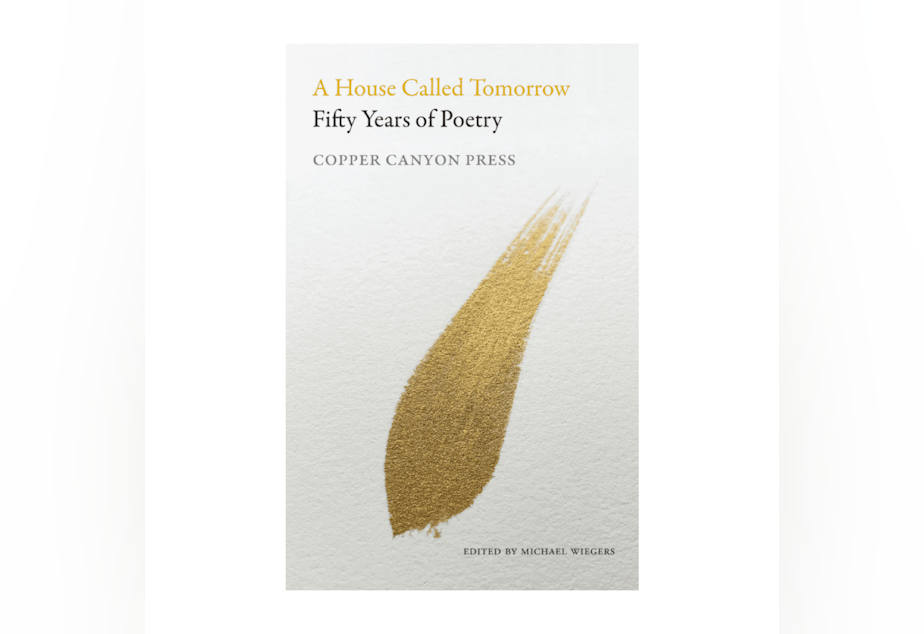This Port Townsend poetry outpost is celebrating 50 years of big impact

Jorie Graham is one of the most well known American poets of the last 40 years. She's published numerous books and won a Pulitzer Prize.
A few years ago, she was confronted with a question about what would happen to her work after she passed away.
"I had to think about where would I want my work to be when I was gone? With whom and whose hands? That's a very big question when that lands on you. When you realize no, no, wait, wait — you have 14 books in print. What the heck is going to happen to them all?" Graham said.
She called up Michael Wiegers. He's the executive editor and editor in chief of Copper Canyon Press, which is headquartered at Fort Worden State Park just north of Port Townsend.
"My first call with Michael was, 'If I bring you my work, will you take care of it when I'm gone?'" Graham said.
Sponsored
Graham is opposed to huge collections of a poet's work being released posthumously — she refers to these thick tomes as “doorstoppers.” She said she strongly believes a book is a singular object of a time and place in a poet’s life. Copper Canyon Press gets that, she added.
"They understand that poets write books, which are an act of lived experience, if you will, through a certain period of time. And that when they complete that book, they've completed that action," Graham explained.
She said the quality of Copper Canyon’s work is clear: They’ve published work by U.S. Poet Laureates and Pulitzer Prize winners, and other highly regarded poets like June Jordan, W.S. Merwin, Ted Kooser, Jericho Brown, and Arthur Sze.
At the press, Graham sees herself as being in conversation with those writers.
"That outpost in Port Townsend, it has a lot of voices — dead and living — if you want to sit there and listen to them," she said.
Sponsored
Paisley Rekdal, a former Utah Poet Laureate, also works with Copper Canyon. She's released two books through the company and has a third book in the works.
Rekdal said she fell in love with the work of late poet C.D. Wright, who published through Copper Canyon. She calls one of Wright’s readings one of the two best of her life.
"When I saw the books that Copper Canyon was putting out by her specifically, I just thought, that's the kind of press I want to be with," Rekdal said. "One that seems to understand an ambitious, capacious, strange kind of poetry project."
Rekdal said she appreciates that the press works to create a book that best suits a project. Her forthcoming book with Copper Canyon is called "West" and places prose, collage, and images next to poems, something that Wiegers worked with her on.
The fact that Copper Canyon only publishes poetry is another plus for both Graham and Rekdal. They both said they’ve felt like afterthoughts when working with other publishers, who are more driven by market forces.
Sponsored
Graham and Rekdal's works appear in a new collection of poems drawn from Copper Canyon’s last five decades titled "A House Called Tomorrow: 50 Years of Poetry."
Michael Wiegers edited the collection and selected the poems in the anthology by asking readers about their favorite work from the last five decades of Copper Canyon Press.
"I wanted it to be truly a representation of that community of the press, and not just Michael's favorite poems, you know? The world doesn't really need that," Wiegers said.
He asked former and current interns, poets, and board members for their selections. Those poems became the contents of the anthology.
"The book really is a reflection of — not poets and the voices of poets — but the voices of readers, and the imagination of readers who have sustained the press over the many years," Wiegers said. "It was a beautiful process that allowed me to re-encounter poems that I was familiar with from having edited them, but seen through the context of other readers' eyes."
Sponsored
Wiegers was surprised that, while the well-known poets like W.S. Merwin and Ted Kooser were selected often, participants submitted a wide variety of poets' work from the last 50 years.
Wiegers received seven or eight suggestions of work by Polish poet Anna Swir.
"It's a book that I that I've loved since since I worked on it 20 something years ago," he said. "And to find that other readers were also similarly touched by it was a surprise, because a lot of the books fly under the radar. And in our work as publishers, we have to just believe and trust that they're going to find their audience — they're going to find their reader."
The anthology is named after Alberto Ríos poem, A House Called Tomorrow. Wiegers described a ritual at Copper Canyon, beginning and ending every meeting with a poem.
The finance manager for the press chose to read Ríos' poem.
Sponsored
"Hearing the poem through somebody else's voice — through somebody else's reading — suddenly, it struck me that that was the perfect poem to lend a title to this," Wiegers said. "While we're looking at 50 years of poetry at Copper Canyon, we're looking toward the future and that's what is exciting about this book."





